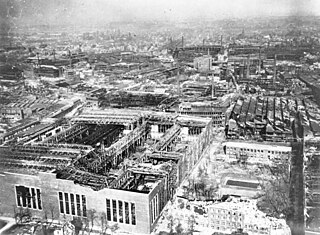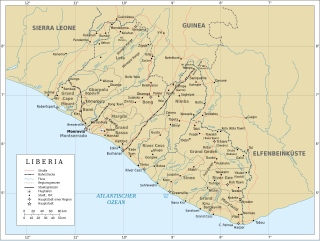Related Research Articles

The European Union (EU) is a supranational political and economic union of 27 member states that are located primarily in Europe. The union has a total area of 4,233,255 km2 (1,634,469 sq mi) and an estimated total population of over 448 million. The EU has often been described as a sui generis political entity combining the characteristics of both a federation and a confederation.

A cartel is a group of independent market participants who collude with each other in order to improve their profits and dominate the market. A cartel is an organization formed by producers to limit competition and increase prices by creating artificial shortages through low production quotas, stockpiling, and marketing quotas. Cartels can be vertical or horizontal but are inherently unstable due to the temptation to defect and falling prices for all members. Additionally, advancements in technology or the emergence of substitutes may undermine cartel pricing power, leading to the breakdown of the cooperation needed to sustain the cartel. Cartels are usually associations in the same sphere of business, and thus an alliance of rivals. Most jurisdictions consider it anti-competitive behavior and have outlawed such practices. Cartel behavior includes price fixing, bid rigging, and reductions in output. The doctrine in economics that analyzes cartels is cartel theory. Cartels are distinguished from other forms of collusion or anti-competitive organization such as corporate mergers.

Price fixing is an anticompetitive agreement between participants on the same side in a market to buy or sell a product, service, or commodity only at a fixed price, or maintain the market conditions such that the price is maintained at a given level by controlling supply and demand.

The Young Plan was a 1929 attempt to settle issues surrounding the World War I reparations obligations that Germany owed under the terms of Treaty of Versailles. Developed to replace the 1924 Dawes Plan, the Young Plan was negotiated in Paris from February to June 1929 by a committee of international financial experts under the leadership of American businessman and economist Owen D. Young. Representatives of the affected governments then finalised and approved the plan at The Hague conference of 1929/30. Reparations were set at 36 billion Reichsmarks payable through 1988. Including interest, the total came to 112 billion Reichsmarks. The average annual payment was approximately two billion Reichsmarks. The plan came into effect on 17 May 1930, retroactive to 1 September 1929.
Competition law is the field of law that promotes or seeks to maintain market competition by regulating anti-competitive conduct by companies. Competition law is implemented through public and private enforcement. It is also known as antitrust law, anti-monopoly law, and trade practices law; the act of pushing for antitrust measures or attacking monopolistic companies is commonly known as trust busting.
The Phoebus cartel was an international cartel that controlled the manufacture and sale of incandescent light bulbs in much of Europe and North America between 1925–1939. The cartel took over market territories and lowered the useful life of such bulbs. Corporations based in Europe and the United States, including Osram, General Electric, Associated Electrical Industries, and Philips, incorporated the cartel on January 15, 1925 in Geneva, as Phœbus S.A. Compagnie Industrielle pour le Développement de l'Éclairage. Although the group had intended the cartel to last for thirty years, it ceased operations in 1939 with the outbreak of World War II. Following its dissolution, light bulbs continued to be sold at the 1,000-hour life standardized by the cartel.

Canadian wine is wine produced in Canada. Ontario and British Columbia are the two largest wine-producing provinces in Canada, with two-thirds of the Canada's vineyard acreage situated in Ontario. However, wine producing regions are also present in other provinces, including Alberta, Quebec, New Brunswick and Nova Scotia.

Until the early 19th century, Germany, a federation of numerous states of varying size and development, retained its pre-industrial character, where trade centered around a number of free cities. After the extensive development of the railway network during the 1840s, rapid economic growth and modernisation sparked the process of industrialization. Under Prussian leadership Germany was united in 1871 and its economy grew rapidly. The largest economy in Europe by 1900, Germany had established a primary position in several key sectors, like the chemical industry and steel production. High production capacity, permanent competitiveness and subsequent protectionist policies fought out with the US and Britain were essential characteristics.
Ultra-imperialism is a potential, comparatively peaceful phase of capitalism, meaning after or beyond imperialism. It was described mainly by Karl Kautsky. Post-imperialism is sometimes used as a synonym of ultra-imperialism, although it can have distinct meanings.
Before 1800 A.D., the iron and steel industry was located where raw material, power supply and running water were easily available. After 1950, the iron and steel industry began to be located on large areas of flat land near sea ports. The history of the modern steel industry began in the late 1850s. Since then, steel has become a staple of the world's industrial economy. This article is intended only to address the business, economic and social dimensions of the industry, since the bulk production of steel began as a result of Henry Bessemer's development of the Bessemer converter, in 1857. Previously, steel was very expensive to produce, and was only used in small, expensive items, such as knives, swords and armor.

The economy of Lithuania is the largest economy among the three Baltic states. Lithuania is a member of the European Union and belongs to the group of very high human development countries and is a member of the WTO and OECD.

The Battle of the Ruhr was a strategic bombing campaign against the Ruhr Area in Nazi Germany carried out by RAF Bomber Command during the Second World War. The Ruhr was the main centre of German heavy industry with coke plants, steelworks, armaments factories and ten synthetic oil plants. The British attacked 26 targets identified in the Combined Bomber Offensive. Targets included the Krupp armament works (Essen), the Nordstern synthetic oil plant at Gelsenkirchen and the Rheinmetall–Borsig plant in Düsseldorf, which was evacuated during the battle. The battle included cities such as Cologne not in the Ruhr proper but which were in the larger Rhine-Ruhr region and considered part of the Ruhr industrial complex. Some targets were not sites of heavy industry but part of the production and movement of materiel.
State cartel theory is a new concept in the field of international relations theory (IR) and belongs to the group of institutionalist approaches. Up to now the theory has mainly been specified with regard to the European Union (EU), but could be made much more general. Hence state cartel theory should consider all international governmental organizations (IGOs) as cartels made up by states.

The history of rail transport in Liberia began shortly after World War II, when the Freeport of Monrovia was completed, with limited rail access. It had been developed by American military forces.

Imperialism, the Highest Stage of Capitalism, originally published as Imperialism, the Newest Stage of Capitalism, is a book written by Vladimir Lenin in 1916 and published in 1917. It describes the formation of oligopoly, by the interlacing of bank and industrial capital, in order to create a financial oligarchy, and explains the function of financial capital in generating profits from the exploitation colonialism inherent to imperialism, as the final stage of capitalism. The essay synthesises Lenin's developments of Karl Marx's theories of political economy in Das Kapital (1867).

The South African Railways Dutton road-rail tractors of 1923 were road-rail steam tractors.
The Comptoir Métallurgique de Longwy was a cartel of iron smelters seated in Longwy, a town in Lorraine, department Meurthe-et-Moselle, France. In a narrower sense of the term, the ‘Comptoir de Longwy’ was only the ‘’sales agency’’ of the respectively underlying cartel, which also enclosed its member firms and possible other cartel organs. As a legal entity, the Comptoir Métallurgique de Longwy existed from December 10, 1876 to February 1, 1921. It should not be mixed up with the Aciéries de Longwy, which was temporarily a member firm of the cartel not earlier than 1880 and survived the cartel up to 1978.
Cartel theory is usually understood as the doctrine of economic cartels. However, since the concept of 'cartel' does not have to be limited to the field of the economy, doctrines on non-economic cartels are conceivable in principle. Such exist already in the form of the state cartel theory and the cartel party theory. For the pre-modern cartels, which existed as rules for tournaments, duels and court games or in the form of inter-state fairness agreements, there was no scientific theory. Such has developed since the 1880s for the scope of the economy, driven by the need to understand and classify the mass emergence of entrepreneurial cartels. Within the economic cartel theory, one can distinguish a classical and a modern phase. The break between the two was set through the enforcement of a general cartel ban after Second World War by the US government.
A compulsory cartel or forced cartel is a cartel that is established or maintained by an administrative order or by a legal directive. The interference of policies on these associations of entrepreneurs of the same trade varied. It ranged from a mere decision to establish a cartel or to maintain an existing one, to a strict state control.
Cartel seats as monuments were the headquarters or other premises of historical, no longer existing cartels in the sense of a group of cooperating, but potentially also rival enterprises. Often, these associations had been syndicate cartels being an advanced form of entrepreneurial combination because of their tight organization with a common sales agency. The cartel buildings had been used for secretariats, meeting rooms, sales offices, advertising agencies, research departments and further more. Many such historical buildings can still be found in Europe and the United States.
References
- ↑ Hallinan, Charles T. (1927): Introduction. In: Robert Liefmann: International cartels, combines and trusts. London: Europa Publ., p. 19.
- ↑ Hallinan, Charles T. (1927): Introduction. In: Robert Liefmann: International cartels, combines and trusts. London: Europa Publ., p. 21.
- ↑ Hallinan, Charles T. (1927): Introduction. In: Robert Liefmann: International cartels, combines and trusts. London: Europa Publ., p. 20.
- ↑ Hallinan, Charles T. (1927): Introduction. In: Robert Liefmann: International cartels, combines and trusts. London: Europa Publ., p. 21.
- ↑ Présidence du conseil (France): Les cartels internationaux. Vol. 2. Paris 1956. p. 34.